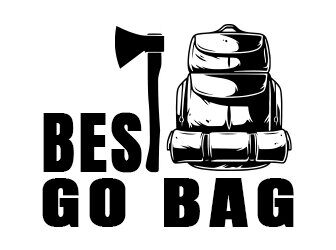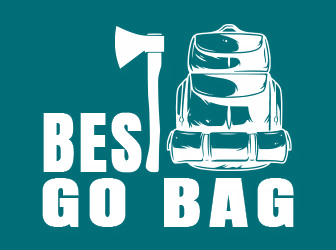In a crisis where you have no access to rainwater or any open body of water, knowing how to collect dew water from the surroundings can spell the difference between survival and dehydration. Every survivalist should know how to gather dew.
RELATED: 5 Primitive Cooking Methods
Full Guide How Survivalists Can Collect Dew Water in the Wild
Step 1: Find a Clean Collection Area
The first thing you need to ensure is the cleanliness and portability of the dew you’re collecting. Dehydration is bad, but drinking contaminated water isn’t any better.
As a general rule, avoid collecting dew from grass that is:
- Near the road or highway. Random patches of grass near busy roads such as expressways and highways are loaded with excess fumes, chipped gravel, and tar—all of which are poisonous to c0nsume.
- Treated with harmful chemicals and pesticides. Steer clear of any patch of grass or lawn that has recently been treated with chemicals and pesticides.
- Filled with animal excrements. Avoid areas with too many animals. There’s a high chance that these types of fields contain traces of feces and urine.
- Near poisonous plants. Poison oak, poison ivy, tobacco, poison sumac, and castor bean are just some of the poisonous plants you should never collect dew from.
If possible, only collect dew from private, untreated fields or secluded grassy areas in the woods.
Step 2: Collect the Dew
Now, it’s time to collect the dew. Wipe the grass with a piece of cloth, then wring out the collected dew in a clean, sanitized cup or tub once the cloth becomes soaked and heavy.
You can use a clean shirt, sock, or rag to collect the dew. Although, opt for chamois cloth if you have it on you because it absorbs exponentially more water than other pieces of cloth do.
Step 3: Filter the Water
If you used a clean piece of cloth to collect dew from a 100% untreated field, then transferred the dew straight to a sanitized cup, you can try drinking the dew water as is. However, this might not be the case in most survival situations.
If you’re going through a tough situation where you only have dew to rely on for your drinking water, then there’s a good chance you’re short on other resources as well. You might not even have a choice on where to collect dew from—much less a clean piece of cloth to collect water vapor with.
In cases like these, opt to distill or filter your water first before consumption. It’s a simple process that would only take a few minutes but drastically reduce the risk of getting infected from contaminated water.
First, filter the dew water. Pass the collected dew water through a clean piece of cloth. Keep filtering until you separate all the visible debris and contaminants.
Next, boil the water. A quick way to kill and inactivate all kinds of harmful viruses and bacteria in your dew water—or any type of water—is to expose them to high heat. Boiling them for at least a minute should be more than enough. Finally, let the water cool down, then enjoy.
RELATED: Challenges Of Prepping | Survivalist Prepper Podcast [LISTEN]
Step 4: Store Extra Water
A young, healthy survivalist with good stamina and excellent dexterity should be able to collect a gallon of water in around 30 to 40 minutes. Meanwhile, the filtering and disinfection would take another 10 to 15 minutes. All in all, it’s safe to assume that gathering one gallon of clean, filtered dew water would consume at least one hour of your day.
This process might be easy to repeat daily. However, there’s no assurance that dew will be available for collection every single day during the crisis period.
The best approach here is to collect as much water as you can once dew becomes available. That way, you won’t have to wait for rain, locate an open body of water, or let dew accumulate just to get access to potable water.
During this process, however, make sure to use a clean container. Whether you’re collecting rainwater or scooping buckets of water from a stream, keeping your drinking water inside an unsanitized, unclean container is never a good idea.
Pro Tip: If you don’t have a large container with you, opt to carry around a clean piece of cloth and some fire-starting tools such as a bow drill instead. If you can’t store potable water, at least make it easy to collect and disinfect water,
Bonus: Disinfecting Water With Bleach
Don’t have the tools necessary to start a fire or boil water? Opt to disinfect water with regular chlorine bleach. This is a disinfection method the Centers for Disease Control and Prevention (CDC) advises to those suffering from natural calamities that cause water interruptions like a flood or hurricane.
First, transfer the water to a clean cup and assess how dirty it is. Try filtering out some of the visible debris and contaminants using a clean piece of cloth.
Next, add in the bleach. Ideally, you should mix eight drops of 6% bleach or six drops of 8.25% bleach per one gallon of water. You can opt to add more drops if the water is too cloudy.
Stir the mixture, then let everything settle for at least 30 minutes. By this point, your drinking water should be emitting a slight chlorine scent, this is normal. In fact, consider adding a few more drops of bleach if your water doesn’t smell like chlorine.
Lastly, do a quick taste test. Don’t continue drinking if the water tastes too muddy and cloudy or if the chlorine stench is too strong.
Important: Only use unscented chlorine bleach. Color-safe or scented bleach options contain extra chemicals that may cause complications when ingested.
Check out this video by Military.com where they share a simple way to collect dew water for drinking purposes:
Water is one of the most important resources one needs to survive. In fact, studies show that symptoms of fatal dehydration start to appear after just three days of not drinking water, while survivalists with access to sufficient potable water can go up to two months without consuming food.
Also, while dew water harvesting definitely gives you the upper hand in a crisis situation, bear in mind that dew won’t always be present. To increase your chances of survival, learn other ways to acquire potable water.
Do you know any other way to collect and gather dew water for survival purposes? Share your tips and tricks with us in the comments section below!
Up Next:
- Surviving Being Trapped In The Desert | How I Survived Podcast [LISTEN]
- 20 Edible Wild Plants You Can Forage For Survival
- Best Ham Radio | Top Choices To Amateur Radios You Can Use
Calling all preppers, craftsmen, bushmasters, outdoorsmen, and all around skilled people, Survival Life needs YOU! Click here if you want to write for us.
Don’t forget to stay connected with us on Facebook, Twitter, Pinterest, and Instagram!


